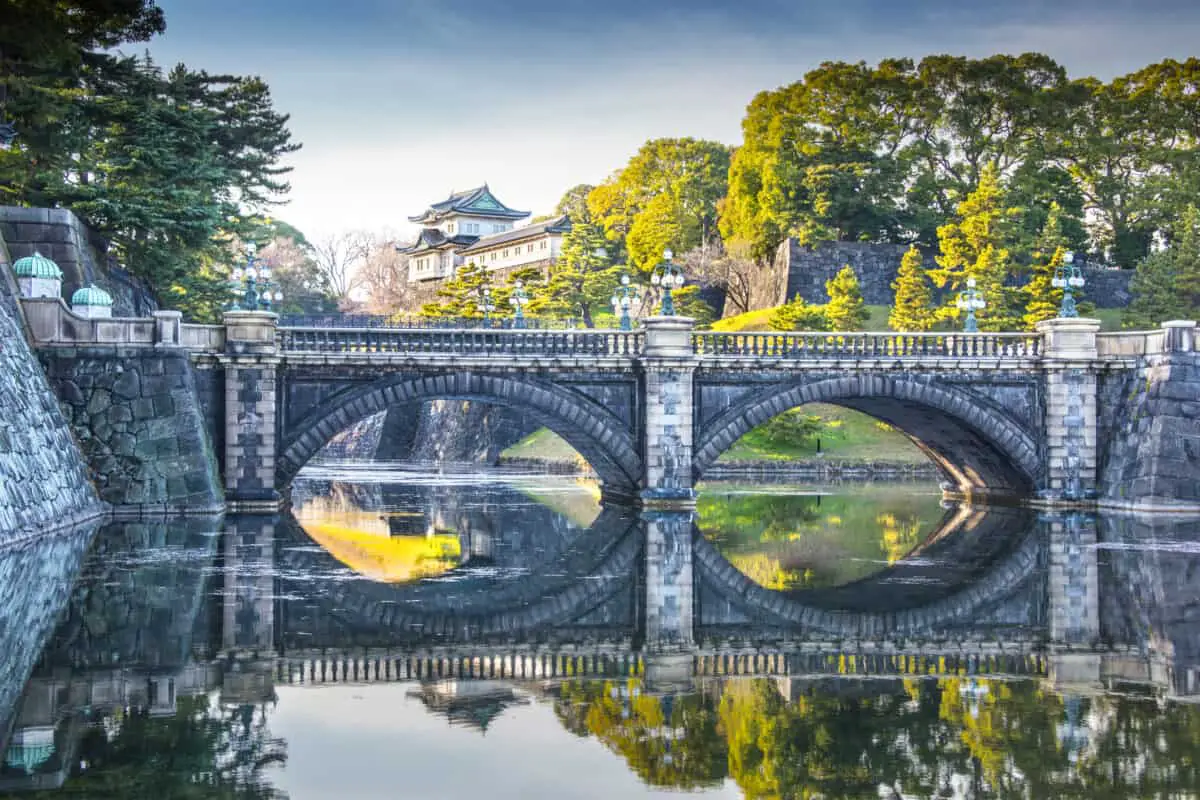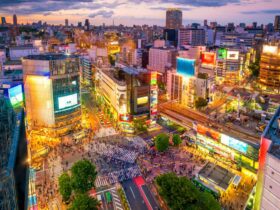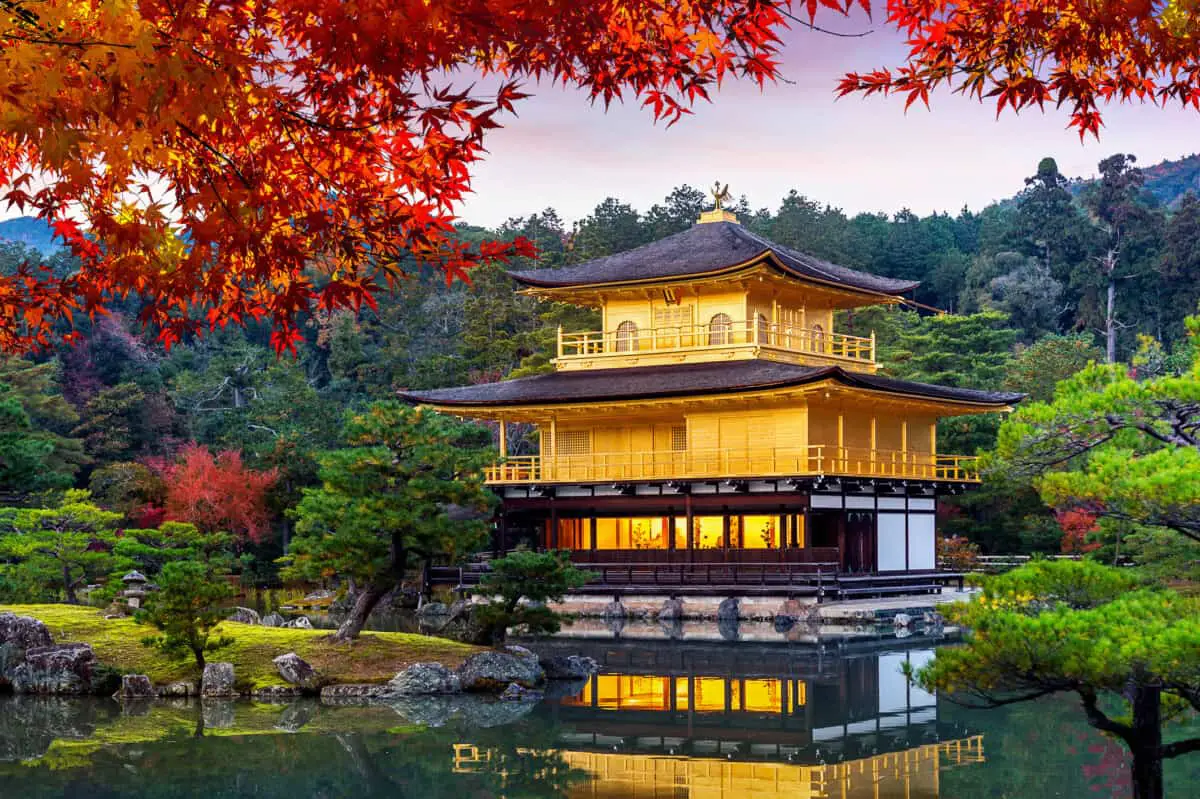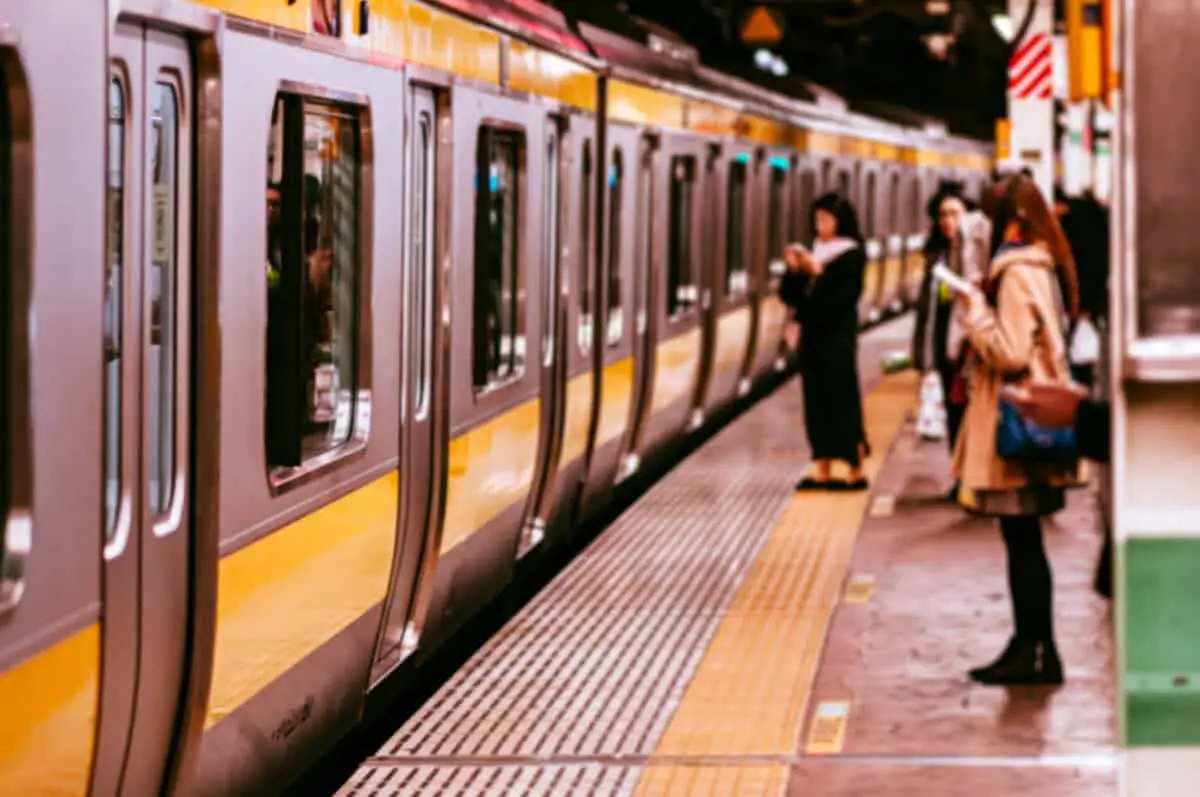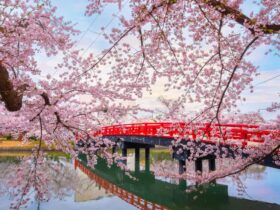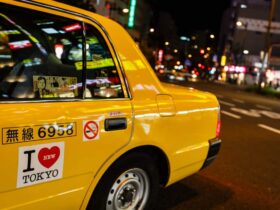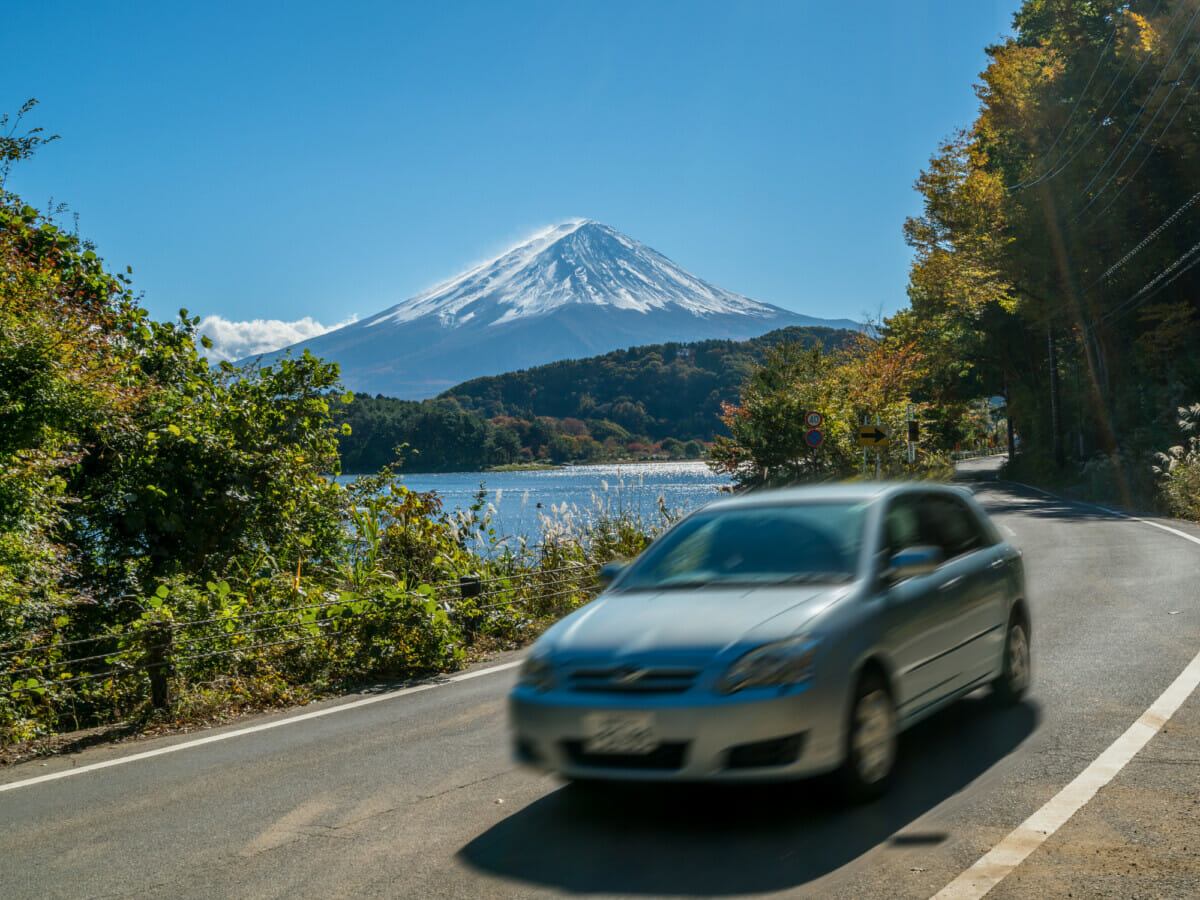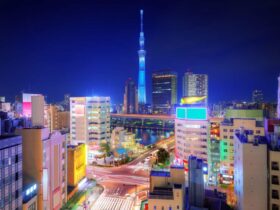Trying to learn an entire language before traveling to a country is no easy feat, but learning some simple phrases can help you navigate a new country so much easier. In Japan, people are very kind and eager to help tourists find their way around, but not all of them understand English.
Having some common terms and phrases in your repertoire can make traveling around Japan a much easier process.

Common Greetings And Manners
Konnichiwa (こんにちは)
This is a well-known greeting in Japan to say hello. Some people will give a slight head bow to the person they are greeting as a sign of respect. This is also how you say “good afternoon.”

Konbanwa (こんばんは)
Konbanwa is how to say “good evening” or goodnight in Japanese. You’ll hear this said often when leaving dinner or coming back to your hotel at the end of the night.
Kudasai (ください)
Kudasai is the word for “please” in Japan. People in Japan tend to be very polite, so using your manners is necessary.

Arigatou (gozaimasu) ありがとう(ございます)
Arigatou means “thank you” in Japanese. Arigatou gozaimasu is a more formal form of thank you. Many will offer a slight bow when saying thank you as well.
Hai; Kekko Desu (はい, けっこうです)
Hai is the word for “yes” and kekko desu is the term for “no.” Kekko desu is a formal phrase, as it’s not considered polite to simply say no.

Daijyobu Desu (だいじょうぶ です)
Daijyobu desu is another more polite way to say no, as it translates to “no worries” or I’m good.
Watashi No Namae Wa (わたし の なまえ は)
This is a phrase to use when you meet new people and want to introduce yourself to someone. The phrase means “my name is.”

O Yasumi Nasai (おやすみなさい)
O yasumi nasai is the phrase for “good night” in Japanese.
Sumimasen (すみません)
Sumimasen is how to say “excuse me” or “sorry” in Japanese. This is a term you can use in many situations, from trying to get past someone to apologizing for a slight mistake you might have made.
Ohayo (おはよう)
Ohayo is a simple phrase that means “good morning.” This could be a nice way to say hello or could be said subsequently to hello when you are greeting somebody.

Ogenki Desuka (おげんき ですか)
Ogenki desuka translates to “how are you?” in English. You are likely to hear someone respond with genki desu, arigato. The response simply means I’m fine, thanks.
Do Itashimashite (どう いたしまして)
This is how to say “you’re welcome” to someone who thanks you.
Irasshaimase (いらっしゃいませ)
This is a greeting you’ll probably hear often but never use. It’s common for greeters at shops or restaurants to greet you this way, and it’s essentially a formal welcome and thank you at the same time.

Dai Jobu Desu (だいじょうぶ です)
Dai jobu desu means “that’s all right” in Japanese, which you can say if someone cannot help you with something.
Language Barrier-Related Phrases
Wakarimasen (わかりません)
Wakarimasen is the term to tell someone that you don’t understand what they are saying.

Eigo Wo Hanashimasu Ka? (えいご を はなします か?)
If you are struggling with your Japanese, you can always try asking someone eigo wo hanashimasu ka, which means “do you speak English?” It’s not unlikely that you’ll encounter people along your travels that can speak at least a little bit of English.
Yoku Wakarimasu (よく わかります)
This phrase means “I understand you perfectly,” which helps if someone is trying to speak with you in English or you understand what they’re saying in Japanese.

Tasukete Kudasaimasen Ka? (たすけて くださいません か?)
This question translates to “can you help me” in Japanese; most people will be more than happy to help you.
Yakushite Kudasai (やくして ください)
If you find someone who speaks Japanese and English, you can ask yakushite kusasai to see if they can help you translate something.
Transportation Phrases
~Made No Chiketto Wo Kudasai (~まで の チケットを ください)
When at a subway or train station, this is how you would ask to buy a ticket to your destination. The name of your destination should be said before you use the phrase.

Densha (でんしゃ)
Densha is the Japanese word for “train,” which you’re likely to use very often during your Japan travels.
Eki (えき)
Eki is the word for “station” in Japanese, such as a train or subway station.
Takushii (タクシー)
The way that taxis work in every country is a little bit different. If you need some assistance finding a taxi, takushii is the Japanese word you’re looking for.

Dono Densha? (どの でんしゃ?)
Dono densha is how to ask which train you are meant to take when trying to go somewhere.
Sougou Annaijo (そうごう あんないじょ)
If you’re at the airport or a big building, sougou annaijo is the term for the information desk where you can go and ask questions.

Kippu (きっぷ)
Kippu is the word for ticket in Japanese, which is especially helpful if you’re using public transportation while in Japan.
Shinkansen (しんかんせん)
Shinkansen is the word for “bullet train,” which is the very innovative high speed train service in Japan.

Tomete Kudasai (とめて ください)
This term means stop please in Japanese, which can be helpful when you’re being driven somewhere.
~Ni Ikitai (~に いきたい)
When you’re asking your taxi driver to take you somewhere, you want to say the place and then ni ikitai afterward, meaning I want to go here.
~Made Onegaishimasu (~まで おねがいします)
Whether in a taxi or trying to find your way around, you can say made onegaishimasu, with the name of the place you’re trying to go to. This can help you get directions.

Time-Related Phrases
Ima Nanji Desu Ka? (いま なんじ ですか?)
Ima nanji desu ka is the way to ask someone what time it is, which can be helpful in a pinch.
Asa (あさ)
Asa is the Japanese word for the morning.

Kyou (きょう)
Kyou is the Japanese word for “today,” which can be helpful when trying to organize an excursion.
Ashita (あした)
Ashita is the Japanese word for “tomorrow,” which, once again, can help you when making up an itinerary.
Nanji Ni? (なんじ に?)
Nanji ni is a helpful term to confirm what time something is supposed to happen.
Directional Phrases
Michi Wo Kiite Mo Ii Desu Ka? (みち を きいて も いいですか?)
Michi wo kiite mo ii desu ka is “can I ask you for directions” in Japanese. Some people will smile and point, while others will walk you to the place you’re looking for.

~Wa Doko Desu Ka? (~は どこ です か?)
Wa doko desu ka is the phrase used to ask where something is. You want to be sure you say the thing you’re looking for at the beginning of the phrase, or you might confuse the person you’re asking.
Tasukete (たすけて)
Tasukete is the Japanese word for help. One thing to know about people in Japan is they tend to be very willing to help tourists, especially if you are nice to them.

Migi ; Hidari (みぎ, ひだり)
When getting directions, it’s helpful to know that migi means right and hidari means left.
Michi (みち)
Michi is the Japanese word for the word “street,” which can be helpful to know when getting directions.

Norikae Ha Arimasu Ka? (のりかえ は あります か?)
This is the phrase for if you need to know whether or not you have to transfer to get to your destination on a bus or train.
Shopping And Dining Phrases
~Wo Kudasai (~を ください)
If you happen to be somewhere like a shop and you are interested in seeing something, you can say wo kudasai, which is a version of, please. You can also politely point or gesture towards something should you have trouble communicating and say wo kudasai.

~O Kudasai (~を ください)
O kudasai is the phrase used when you are ordering something off of a menu.
Kore Wa Nan Des Ka? (これ は なん です か?)
Kore wa nan des ka is how to ask “what is this?” in Japanese. This can be especially helpful when shopping, at a market, or eating somewhere.

Omakase De (おまかせ で)
If you are an adventurous eater, consider using the phrase omakase de when at a restaurant. This is how you ask for the chef’s recommendation for a dish.
Itadakimasu (いただきます)
This is a very polite thing to say to someone who has presented you with a meal, whether at someone’s home or at a restaurant. Once you’re presented with the food, this is when you would say this phrase.
Kore Wa Oishi (これ は おいしい)
This is how you can tell the waiter that your meal is delicious.
Okaikei Wo, Onegaishimas (おかいけい を おねがいします)
When you’re at a restaurant and ready to leave, okaikei wo onegaishimas is how you ask for your bill.
Otsugi No Kata Douzo (おつぎ の かた どうぞ)
When at a busy shop or convenience store, this term means they’re ready to serve the next person in line.
Obento Atatamemasu Ka? (おべんとう あたためます か?)
You’ll likely be asked this at a convenience store if you buy a bento box, and this question is asking if you want it heated up.

Osake (おさけ)
This word, which sounds like sake, is a term for alcoholic beverages.

Mizu (みず)
Mizu is the Japanese word for “water.”
Nihonshu (にほんしゅ)
Nihonshu is actually the term to use when you want to order some delicious Japanese sake or rice wine.
Kin-En Seki (きんえん せき)
If you’re at an establishment that allows smoking and doesn’t want to be near the smoke, kin-en seki is how to ask for a non-smoking seat.

Kissaten (きっさてん)
Kissaten is the word for “coffee shop” in Japan, which are common but maybe not as recognizable in Japan.
Hotto Kohi (ホットコーヒー)
This is how you ask for a hot coffee in Japanese.
Aisu Kohi (アイスコーヒー)
This is how to ask for an iced coffee in Japanese.
Eigo No Menyu Arimasu ka? (えいご の メニュー あります か?)
You can ask a waiter at a restaurant if they have an English menu with this question, as some of them will offer this.

Konbini (コンビニ)
Konbini is a short term for “convenience store,” and it’s very helpful to know where these are as you can find so many things in a konbini.
Ikura Desuka? (いくら ですか?)
If you have trouble finding the price of something you want to purchase, asking the shopkeeper, ikura desuka will help you find out the price. You can gesture toward something if you don’t know how to say it in Japanese. If you do know the term, you can put the word in front of the question.
Omiyageya (おみやげや)
If you’re looking for a gift or souvenir shop, you can ask someone where the omiyageya is.

More Helpful Words And Phrases
Toire Wa Do Ko Des Ka? (トイレ は どこ です か?)
Toire is the Japanese word for toilet, and so this is how you can ask where a bathroom is.
Wifi Arimasuka? (ワイファイ あります か?)
This is how to ask for a wi-fi connection, which you can often find in many public places in Japan.

Chekku In Wo Onegaishimasu (ちぇっくいん を おねがいします)
When you arrive at your ryokan or hotel, this is how you tell the front desk that you’re checking in.
Nimotsu Wo Koko Ni Oite Itte Mo Ii Desu Ka? (にもつ を ここに おいて いっても いいですか?)
If you’ve checked out of your hotel but want to walk around, you can ask them to hold your luggage with this phrase.

Chekku Auto Wa Nanji Desu Ka? (ちぇっくあうと は なんじですか?)
When checking into your hotel, you should ask chekku auto wa nanji desu ka, which is how to ask when your check-out time is.
Taoru (たおる)
At a hotel or hot spring, taoru is the word for “towel” in Japanese.
Kaji-gakari ( かじ がかり)
If you need some assistance in your hotel room, kaji-gakari is the word for housekeeping.
Yoyaku Wo Shitai Desu (よやく を したいです)
Yoyaku wo shitai desu means “I’d like to make a reservation,” which you can use at a hotel or restaurant.
Okaeri (おかえり)
This is another term you won’t usually say, but you’ll hear, and it means “welcome back.”
Ryougaejo (りょうがえ じょ)
This term is for the currency exchange in Japan, where you’ll likely want to go once you’ve made it to the airport.

Zeikan (ぜいかん)
Should you need to go to customs at the airport, zeikan is the Japanese word for “customs.”
Kurejitto Kaado De Ii Desu Ka? (クレジットカード で いいですか?)
Credit cards are not universal normalcy in Japan, so you should always ask if credit cards can be used before assuming when purchasing something; this is what this question means.
Itterasshai (いってらっしゃい)
This is a kind term you’ll often hear when leaving a hotel, as it basically means goodbye for the day.
Ichi – Juu (いち-じゅう)
Knowing basic Japanese numbers can be extremely helpful, such as from one to ten, which are:
- Ichi: one
- Ni: two
- San: three
- Yon: four
- Go: five
- Roku: six
- Nana: seven
- Hachi: eight
- Kyuu: nine
- Juu: ten

